CQU HRMT20024 - Week 5: Work Design Challenges in a Global Environment
VerifiedAdded on 2022/08/27
|7
|890
|24
Report
AI Summary
This report, prepared for CQU's HRMT20024 course, addresses work design challenges in a global environment, focusing on the impact of empathy on job design for expatriates. It analyzes an article by Tsedal Neeley, examining the value of empathy in identifying workforce concerns and improving job design. The research methodology involves reviewing secondary data, including peer-reviewed journals and company websites, to explore the relationship between empathy and job design. The findings highlight empathy's crucial role in matching job design to employee capabilities, addressing challenges faced by expatriates, and improving overall organizational performance. The report connects these findings to the week's lecture on global job design, emphasizing the importance of empathy in overcoming challenges and enhancing organizational outcomes. The report also identifies the linkages between job analysis, competencies, position descriptions, and person specifications. It recognizes the changing nature of job descriptions and person specifications when using job design strategies. Finally, the report also provides a strategic model for job requirements.
1 out of 7

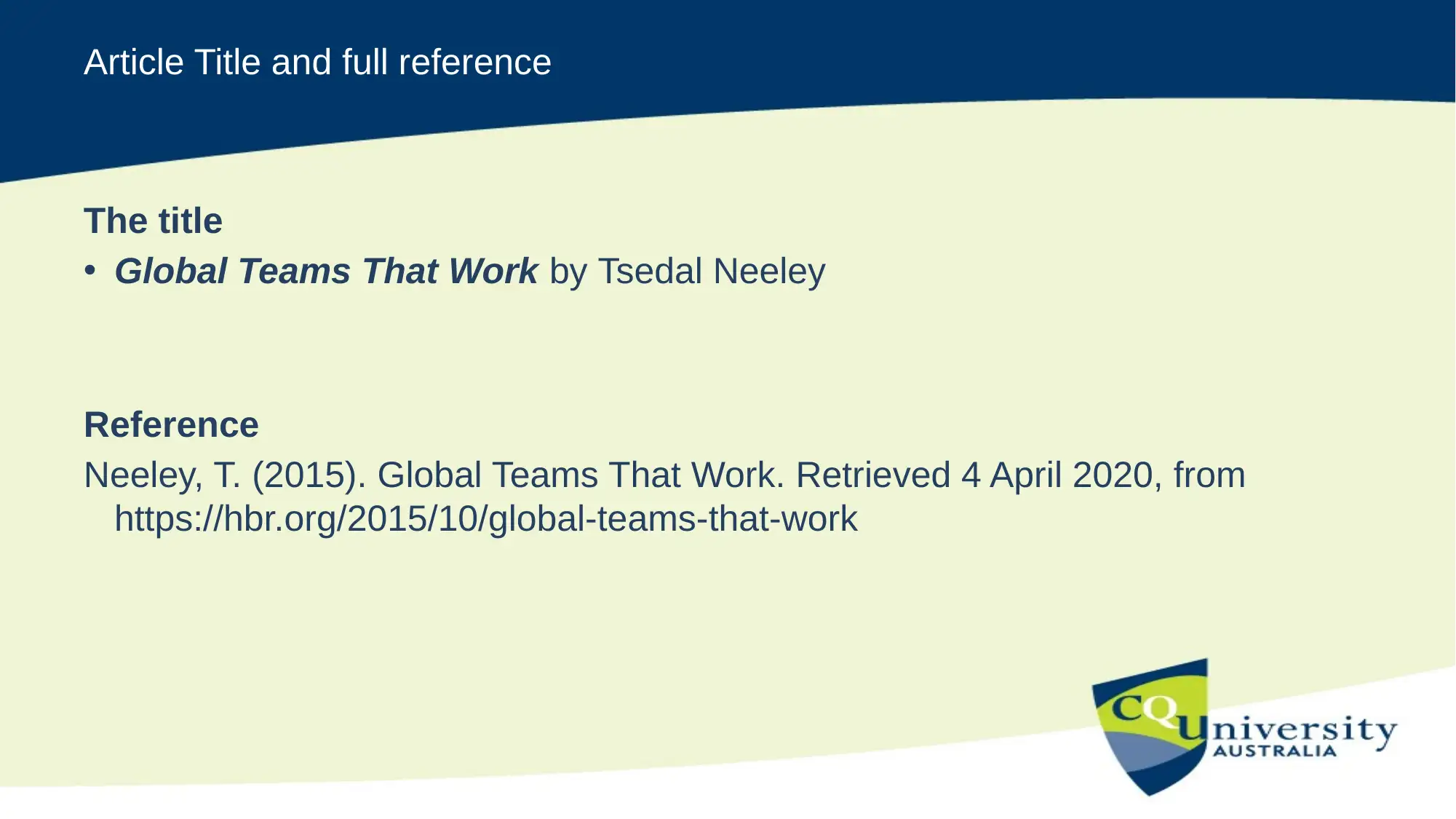
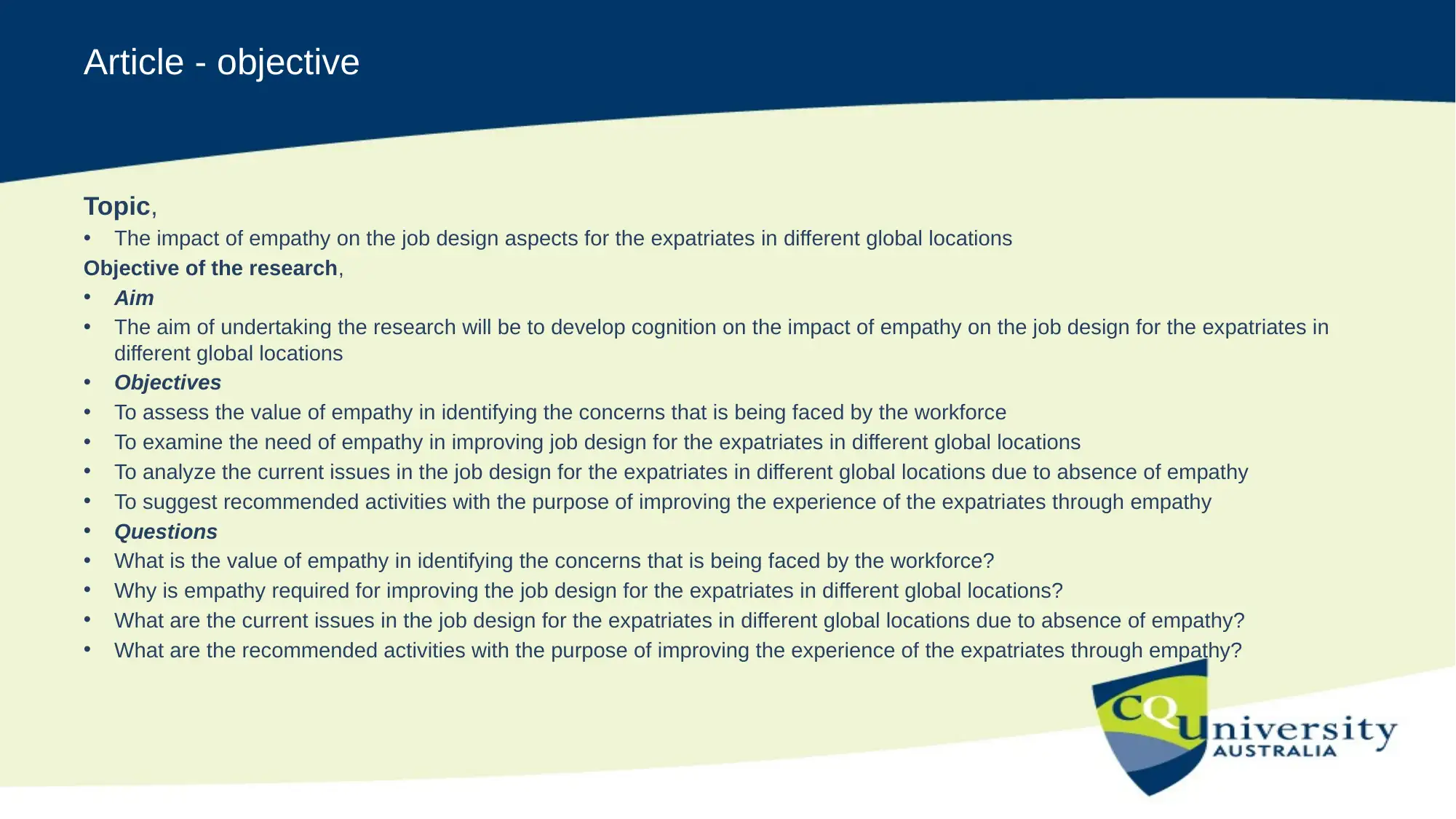

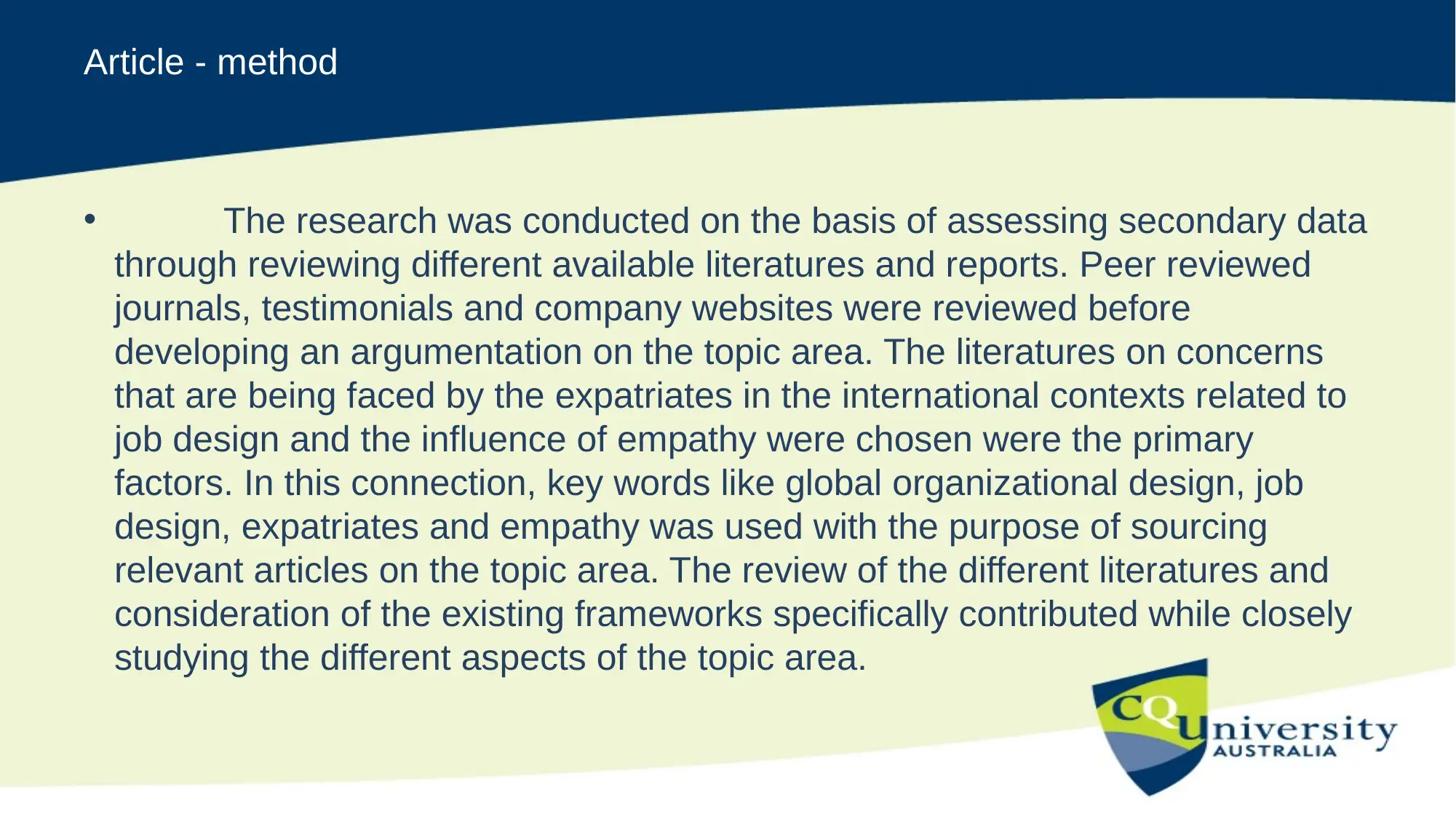
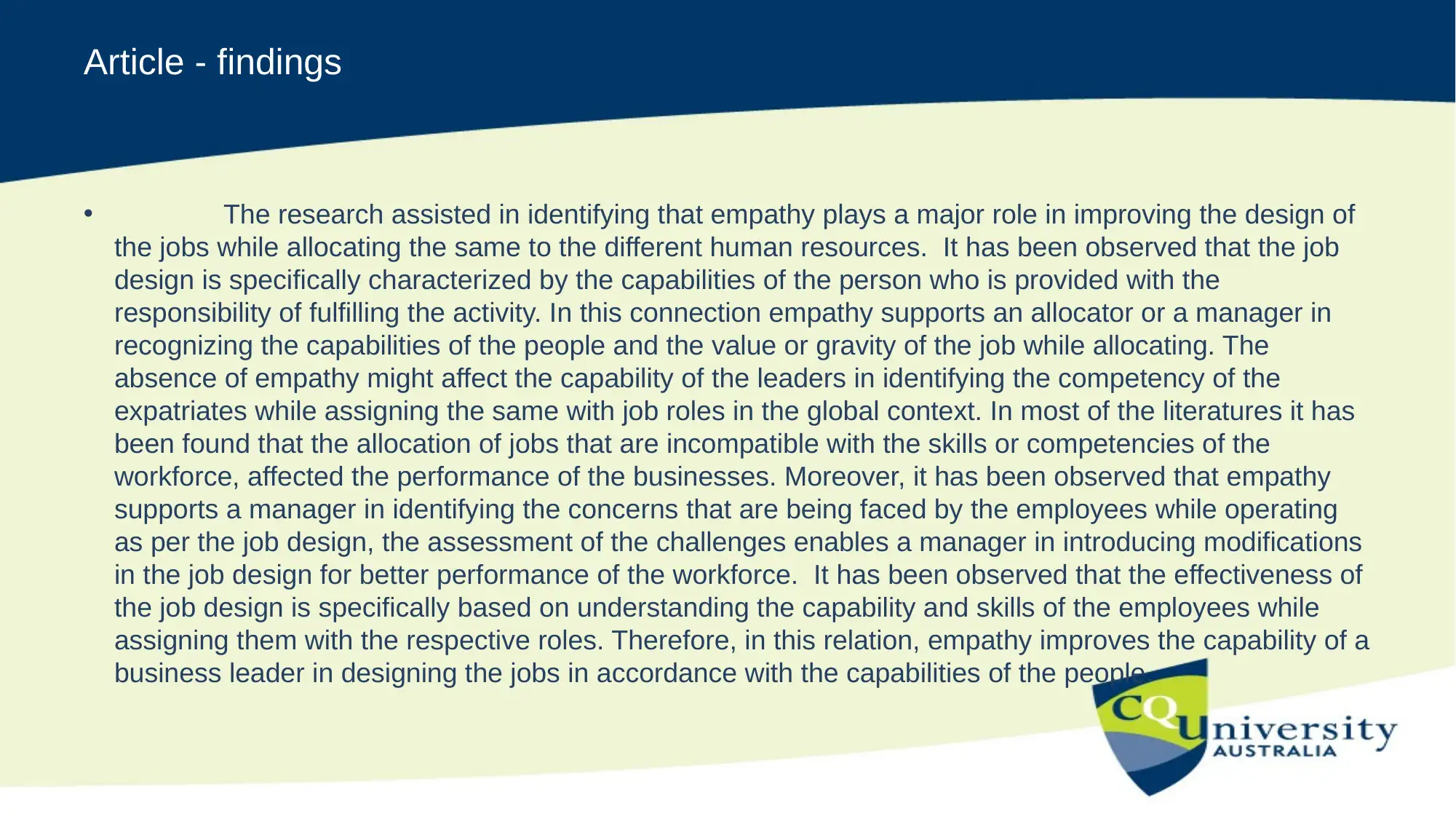
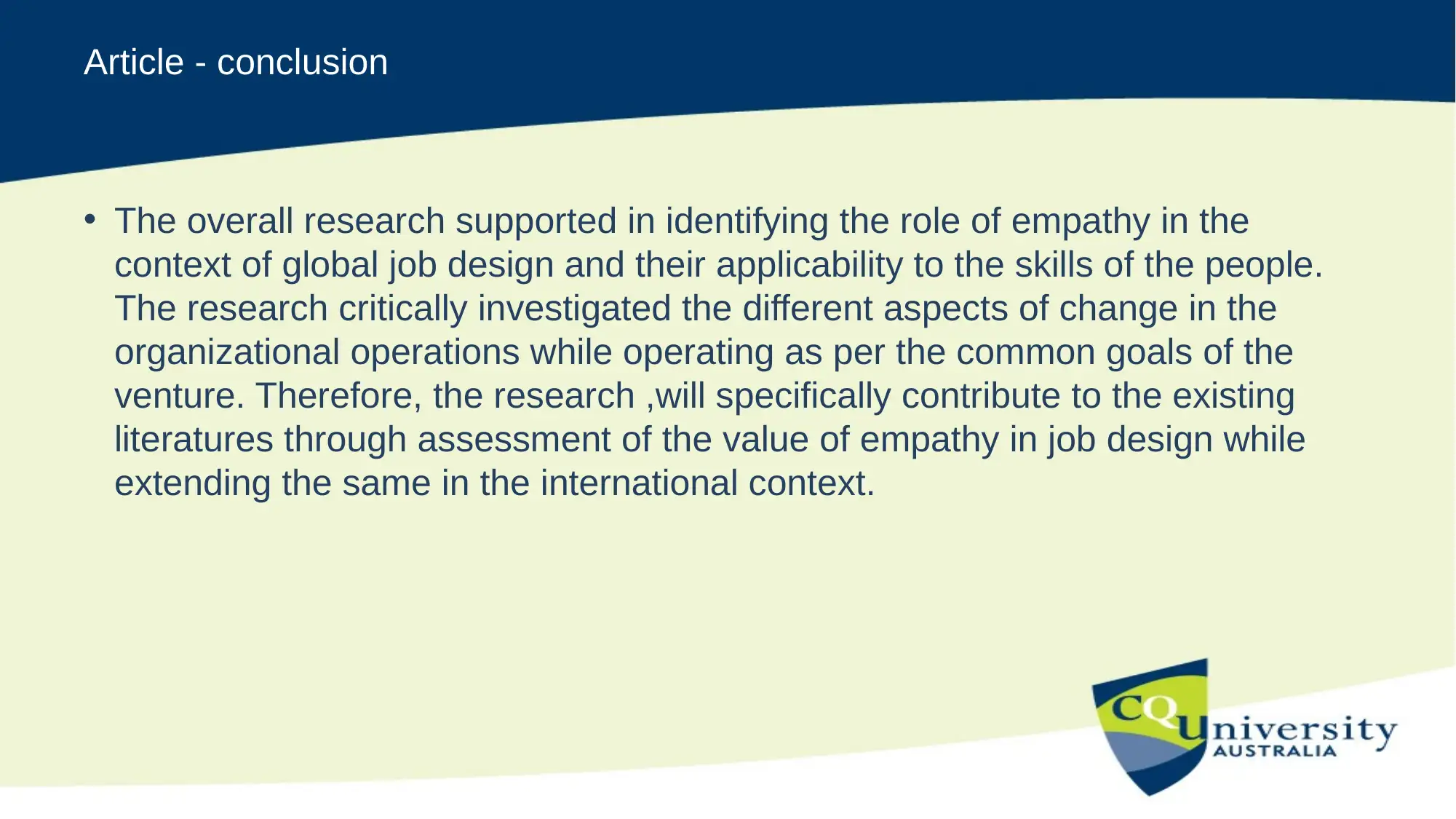
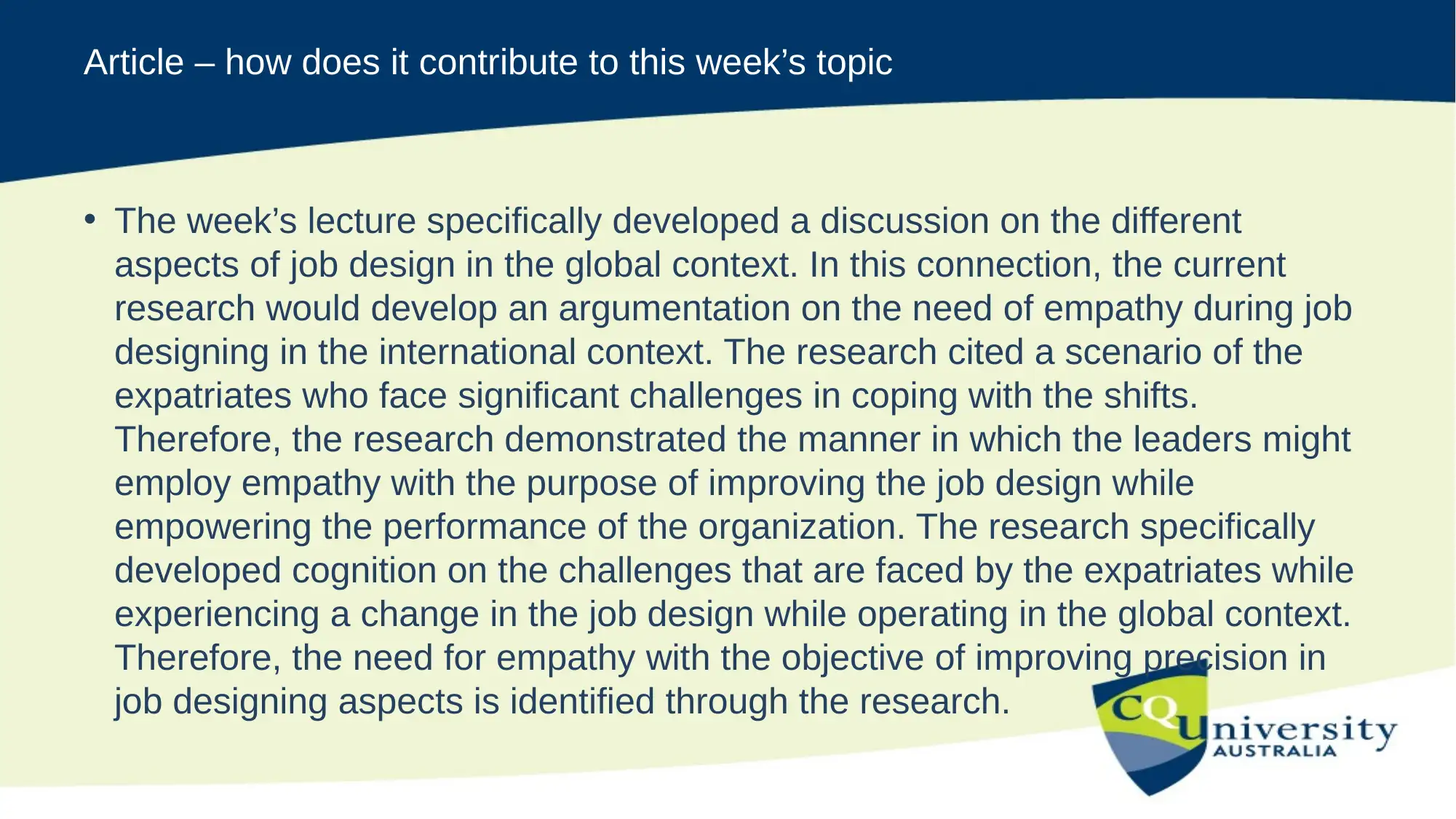






![[object Object]](/_next/static/media/star-bottom.7253800d.svg)